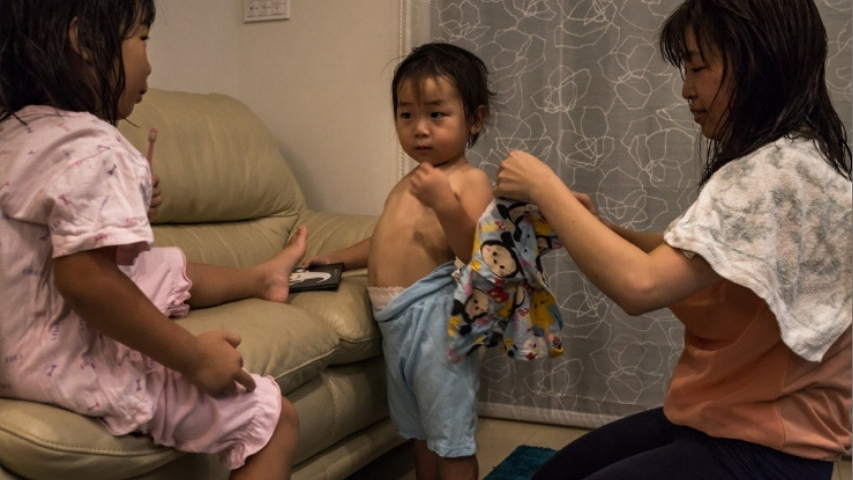
The burden of the overworked Japanese mothers
by Shruthi Venkatesh March 27 2019, 2:14 pm Estimated Reading Time: 3 mins, 30 secsMany Japanese women are caught in limited roles in the workplace, which hold them back from their biggest ambitions caused by the disproportionate burden women shoulder at home. Men in Japan do fewer hours of housework and child care than in any of the world’s richest nations. “The awareness of men is still so low. My husband does not have a gender equality concept.” - Kazuko Yoshida, 38, a graphic designer and mother of two young children in Tokyo.
Japan’s Prime Minister, Shinzo Abe, has an explicit goal of energizing his nation’s puttering economy by elevating women in the labour force, an initiative referred to as “womenomics.” At the World Economic Forum in Davos, Switzerland, in January, Abe boasted that 67 percent of women were working in Japan, an all-time high and “higher than, say, in the United States.” But the responsibilities of house hold chores keep women from getting better jobs and hold back the economy.

Japan's working mothers record little help from dads
According to an analysis of government data by Noriko O. Tsuya, an economics professor at Keio University in Tokyo, women who work more than 49 hours a week typically do close to 25 hours of housework a week. Their husbands do an average of less than five. “Compared with what happened in women’s employment,” said Tsuya, “there has been so little change, or a lack thereof, in gender relations at home.”
To be more specific, The New York Times highlights the life of Yoshiko Nishimasa’s daily routine. The preschool her two youngest children attend requires the family to keep daily journals recording their temperatures and what they eat twice a day, along with descriptions of their moods, sleeping hours and playtime. On top of that, her 8-year-old son’s elementary school and after-school tutoring class require that a parent personally signs off on every homework assignment. The paperwork, of course, is just the beginning. There is cooking, cleaning and laundry, often at a scale that far exceeds what most Westerners do. Cooking a typical Japanese dinner often involves preparing multiple small dishes. Packed lunches can be works of art. Dishwashers are not yet ubiquitous. And as for laundry, few families own dryers big enough for large loads, so wet clothes are generally hoisted on clotheslines. She does the vast majority of it all.
Japan’s economy needs educated women like Nishimasa to work to their full potential. The nation entered a period of rapid economic growth earlier, where Japanese women typically quit work when they married or gave birth, taking care of the home while their husbands worked punishingly long hours to power Japan Inc.’s industrial expansion.
According to the Organization for Economic Cooperation and Development, less than 1 percent of employed women in Japan are in management positions, compared with an average of 4.6 percent among the world’s most developed nations. Kathy Matsui, a Goldman Sachs strategist who wrote influential papers that Abe relied on when formulating his “womenomics” policy, said that raising women’s employment rates to the same level as men’s could increase the country’s economic output by more than 10 percent. “But the boost to the Japanese economy would be much larger if women could pursue higher-level careers and were appropriately paid”, Matsui added. “How do we make that happen?” she said.
Some experts argue that Japan’s culture of overwork is unnecessary, leading to inefficiencies and low productivity. If everyone worked fewer hours, women might be able to catch up and Japanese society as a whole would benefit, they argue. “If the work day could be shortened in Japan, I think a younger generation of men would do more as fathers,” said Margarita Estevez-Abe, associate professor of political science at Syracuse University.
“The ones who work long hours get the promotions,” she said. “And the bosses have full-time housewives,” says Nishimasa while she goes to bed along with her two children long waiting for her husband to return home.




-173X130.jpg)
-173X130.jpg)
-173X130.jpg)
-173X130.jpg)
-173X130.jpg)
-173X130.jpg)
-173X130.jpg)
-173X130.jpg)